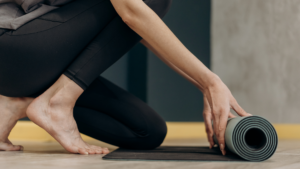How submerging in icy water can improve your wellness
Sitting in freezing water may sound insane, but cold water therapy is a popular practice among health enthusiasts worldwide. It has recently gained recognition for providing distinctive health benefits, making it an increasingly popular form of cryotherapeutic practice.
Expert explains, Plunging your body into cold water causes blood vessels to constrict, directing blood toward organs that supplies the blood with more oxygen and nutrients. When you get out of the cold water, your blood vessels open up, allowing oxygen and nutrient-rich blood to return to your tissues to help remove waste and lactic acid buildup, which may delay healing.
With thousands of years of history, cold-water therapy has been a cryotherapeutic practice used by various cultures worldwide, with documented health benefits still relevant to this day. Today, healthcare professionals such as physical therapists, chiropractors, and personal trainers use cold-water immersion and other forms of cold water therapy as pain relief, to speed up muscle recovery, among other incredible benefits.
So, what are some of the potential health benefits of cold water therapy?
Enhance Recovery From Exercise
Many professional and everyday athletes, working with licensed trainers or healthcare professionals, use cold water therapy to aid muscle recovery from an intense workout. A past review and recent meta-analysis support evidence that cold-water immersion reduces delayed onset muscle soreness after exercise, compared with passive interventions involving rest.
Reduce Pain
Cold water therapy may help with both short-term (acute) and long-term (chronic) pain. By lowering inflammation, cold water may reduce overall pain. Contrast water therapy, which alternates between hot and cold water, has been incredibly helpful. Hot and cold water creates a pumping effect as the blood vessels constrict and expand, boosting blood flow to deliver more oxygen and nutrients to the tissues, helping lower inflammation.
Improve Circulation
Cold water therapy has incredible benefits for circulation, enhancing oxygen levels in the submerged leg muscles. The circulatory system pumps blood to the lungs to transfer oxygen via the heart to the rest of the body. The better your heart and blood vessels can perform these functions, the better they’ll rid your body of waste.
Boost Your Mood
Submerging in icy water increases dopamine concentrations by 250 percent, known as the “feel-good” hormone. Dopamine plays a key role in regulating mood, making cold water therapy a possible mood booster. A study found that a 20-minute cold-water bath four days a week lowered pain and improved overall quality of life in people with gout while also lowering stress, anxiety, and depression.
Build Resilience
Challenging yourself regularly to withstand cold temperatures may help you build resilience, or the ability to handle stressful situations. Exposure to cold water triggers the release of hormones like adrenaline, epinephrine, noradrenaline, which could increase by 530 percent. Research has also shown that ocean bathers who immerse themselves in cold water have lower levels of self-reported stress and higher well-being.
Cold water therapy or cryotherapy can undoubtedly provide distinctive health benefits and improve overall wellness.
A guide by Cameron on how he takes his cold water plunge
Disclaimer: Cold water therapy, also known as cold water immersion or cold exposure, involves exposing the body to cold water for therapeutic purposes. It is important to note that cold water therapy may not be suitable for everyone and should be approached with caution. Individuals with certain medical conditions such as heart disease, hypertension, or respiratory problems should consult with a healthcare professional before attempting cold water therapy. Additionally, pregnant women and individuals with compromised immune systems should seek medical advice before engaging in cold water immersion. It is essential to gradually acclimate the body to cold water exposure and to never force oneself beyond their limits. Cold water therapy carries inherent risks, including hypothermia, shock, and injury, and should be undertaken responsibly and under appropriate supervision. Always prioritize safety and listen to your body when practicing cold water therapy.
References and Source Credits: projectcameron247365
Also Read : Aromatherapy Magic: Elevate Your Wellness Journey with Essential Oils






